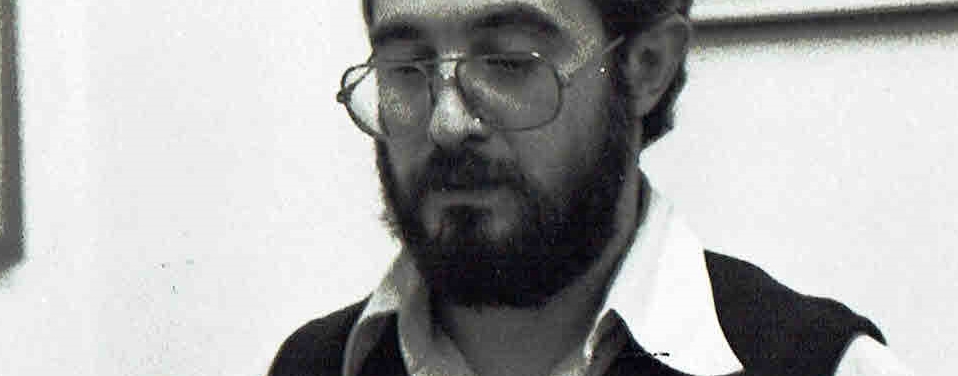Each documentary fund held by the CAMeNA tells stories, preserves memories, bears witness. Some of these funds – like the personal papers of Gregorio Selser – are of a personal nature and tell an individual’s story as they take on, and as their lives are sometimes taken over by, their historical moment. Others – like Selser’s research papers collected in Fondo A – make publicly available the documentation collected by individuals on a particular theme, or a thematic area, thus communizing research material.
Selser and Ventura’s documentary collections, purchased by the UACM, set the ethical, political and epistemological agenda for the production of knowledge and the practice of critical thinking at the CAMeNA. Once Selser’s collections had been acquired and had been consolidated within the structure that became the CAMeNA, other individuals and groups contributed archival collections to the Centre. They all gave their little grain of sand towards the wider project of the pursuit of knowledge and the preservation of an alive memory. The first fund to hold collections that came to the CAMeNA by donation is Fondo D, with ‘D’ standing for ‘donations.’
Fund D holds three collections which cover the time period from 1952-2012. The first is the journalist and publicist Carlos Fazio’s collection of research papers. Fazio was born in Uruguay, militated with the armed Movement for National Liberation -Tupamaros, and left the country for exile in Mexico in 1974 after the 1974 coup d’état. In Mexico he worked as a journalist for many papers, among them the weekly Proceso. Carlos Fazio is the author of numerous books and is considered one of the most important analysts of contemporary state violence and state terrorism, especially from the perspective of media analysis . The second donated collection was a gift from Raquel Gutiérrez, a Mexican mathematician and sociologist who became involved in the guerrilla group Ejército Guerrillero Túpac Katari in Bolivia in the 1990s. In 1992 she was arrested, tortured, and held without trial for five years. After that, she had to remain in La Paz for another four years. She then returned to Mexico, where she now lives and teaches. She is the author of several books. Hector Salinas donated the third collection in that Fund, on the student strike at the UNAM in 1987 and the electoral process in Mexico in 1988.
What do these three – seemingly disparate – collections contribute to the repertoire of memories and knowledges of the CAMeNA? All three donors, like Selser and Ventura, lived their historical moment intensely and did what they could to understand, to intervene, and to ensure that such struggles were not forgotten. All three collections document the efforts of individuals and groups to achieve social and political transformation, to fight back against repression and oppression – and the response of those reactionary forces that wanted to keep things as they were. Because the reactionary power was mostly in the hands of the state, the three collections include material on state violence, state terrorism, and electoral fraud.
In the system of the CAMeNA the three collections are joined. They are made accessible through a search that combines a theme – with keywords such as Human Rights, the Church and religious communities, or state violence – with the relevant country. For those interested in the history of religions the documents contributed by Carlos Fazio on the Catholic Church and religious communities, an area he covered for years for Proceso, are of great interests. The documents give an insight into the debates within the Catholic Church during a time period that was marked by the opposing forces of Liberation Theology and the Church Establishment. Those interested in Media and Communications Studies will find documents on communitarian radio stations and on the repression against media outlets and journalists. The documents given by Raquel Gutiérrez give an insight into the motivations for armed struggle, into the activities and activism of the family members of political prisoners in Bolivia, and into her own prison activism and legal case. The press clippings, communiques and flyers on the 1987 strike at the UNAM can potentially open up an area on which little research has been published. The material on the 1988 elections in Mexico document what turned into a watershed moment in contemporary Mexican history: despite persistent allegations of election fraud, Carlos Salinas de Gortari was declared the winner of these elections. The public protest gained momentum and set the stage for persistent social and political organization in the years after 1988. To give only one example, it was in the context of the protest against fraud that the alternative media outlet Canal Seis de Julio was founded. Under Salinas’ government a wave of repression was unleashed against oppositional forces, and it was his government that implemented the North America Free Trade Agreement.
Brought together by the CAMeNA, the three collections – each on its own significant – open up a panorama of the many interlinked facets of struggle, of organizing, of the pursuit of knowledge as an exposure of reactionary alliances and complicities, and of the multi-faceted repression against movements for social and political transformation .
N.B.: Many of the documents available in Fund D are not yet available in digital format and therefore need to be consulted at the CAMeNA itself.
Cornelia Gräbner is currently a Leverhulme Research Fellow and would like to acknowledge The Leverhulme Trust’s support. She would also like to thank the CAMeNA staff for their support.

